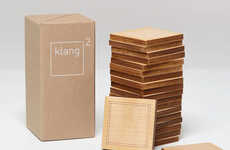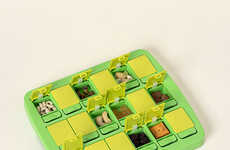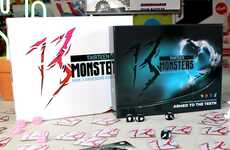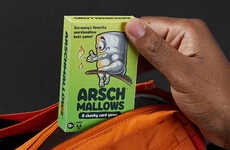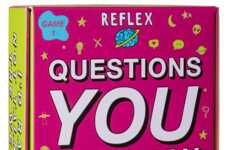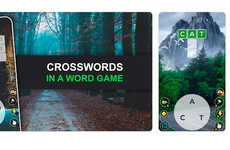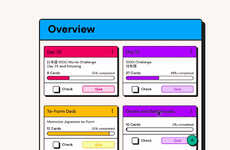
'ReMory' is a Memory Card Game That Challenges with Visual Patterns
Laura McQuarrie — March 25, 2017 — Life-Stages
References: thedieline
'ReMory' is the name of a modern memory card game that uses bold, graphic shapes to test one's ability to remember.
The game is packaged in a tall, standing box that contains three decks of varying levels of difficulty. To play, one must simply reverse cards that are flipped upside down in order to find a match. The twist is that there are no rules to how many people may play at once, or the number of decks that can be included into gameplay.
The shapely illustrations that are shown on each cards are actually representations of the letters of the alphabet. The printing styles used for each level also increase in complexity, with the Easy deck featuring one color print technique and the Hard deck favoring four-color print.
The game is packaged in a tall, standing box that contains three decks of varying levels of difficulty. To play, one must simply reverse cards that are flipped upside down in order to find a match. The twist is that there are no rules to how many people may play at once, or the number of decks that can be included into gameplay.
The shapely illustrations that are shown on each cards are actually representations of the letters of the alphabet. The printing styles used for each level also increase in complexity, with the Easy deck featuring one color print technique and the Hard deck favoring four-color print.
Trend Themes
1. Memory-boosting Card Games - The trend of creating card games to improve cognitive function, particularly memory.
2. Visual-based Learning Games - A trend of utilizing bold, graphic and shapely illustrations to challenge cognitive abilities and enhance visual recognition.
3. Adaptive Game Rulesets - A trend of allowing more flexibility with game rules, such as including multiple decks and different player counts to tailor gameplay for improved engagement and experience.
Industry Implications
1. Cognitive Skill Training - There is an opportunity for companies that focus on cognitive training or cognitive coaching programs to use card games as a tool to help people improve their cognitive skills and brain function.
2. Edtech - Edtech companies can develop visual-based learning games for children in a playful way to improve their cognitive abilities alongside general education.
3. Printing Industry - There is an opportunity for companies in the printing industry to create custom decks of cards for brands or private labels who want to introduce a new way of learning or improving cognitive functions.
2.4
Score
Popularity
Activity
Freshness


